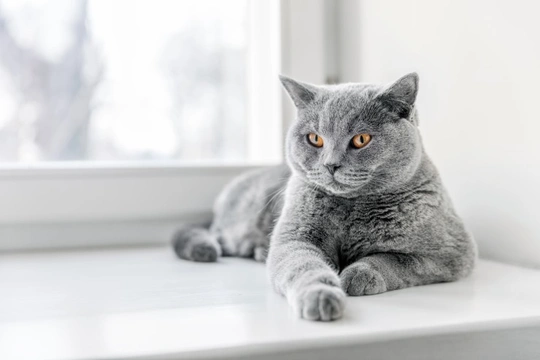
Why Does My Cat Purr So Quietly? | Silent Cat Purring
Cats start to learn their first vocal signals from the time that they are a couple of weeks old, and they start to pick up the various trills and meows that their mother makes and begin to replicate them very quickly. Purring is also an instinctive sound from cats, and the contented purring of the queen while the kittens feed is very comforting to her kittens, and something that they will start doing from a very young age too!
However, while most of us find the sound of our cat’s purr loud enough to rival the television on occasion, and most cats have a range of clear meows that they use daily, some cats appear to be almost silent, or even totally silent-either never meowing, or meowing silently. Additionally, some cats appear to purr silently too, although this is less common.
If your cat appears to meow or purr silently, you have probably wondered on occasion why this is, whether something is wrong, and if there is anything that you can do to amp up the volume! In this article we will look at silent purring and meowing in cats in more detail, why it might happen, and if there is anything amiss. Read on to learn more.
Silent or non-existent?
When you’re trying to work out what’s going on with an inaudible purr or meow, the first thing to try to establish is whether or not your cat is making the movements to create a sound but the sound is not coming out, or if they simply have nothing to say!
When it comes to purring, you can feel a purr as well as hear it, so when your cat is relaxed and happy while being stroked, you will be able to feel the purr even if you cannot hear it. It is highly unusual for a cat to not purr at all-and in this rare case, the issue may be that the cat never learned to purr (although most cats purr instinctively without being taught) or there is some form of behavioural issue for their staying silent. Also, if the cat has been traumatised, or is very shy or nervous (such as is often the case with a feral cat living within a home environment) they might never feel comfortable enough to purr.
Silent or almost inaudible meowing is more common than a “broken purr,” and you can usually tell if your cat is silently meowing or not meowing at all simply by opening their favourite food or treats, and holding off giving it to them for a second. If your cat squeaks or is opening their mouth, they are probably making the meowing motions, but no sound is coming out!
Why might a cat meow silently or almost inaudibly?
The voice (be that human or animal) is a complicated thing, and the range of sounds that cats make and the timbre of them depend on a range of things including their conformation, lungs, vocal cord formation, size, and many other factors.
Making a sound from the mouth involves passing air from the lungs over the vocal cords in a controlled manner to elicit one of a range of sounds from them, and if your cat does not make any sound, they may have damaged or poorly developed vocal cords, or simply aren’t making the right movements. Cats learn a lot from observation of other cats, so if you have another cat that is fairly vocal, this can encourage a quiet cat to “talk,” or go through the motions! Additionally, conditions like feline asthma can lead to a very quiet or raspy meow, or one that might change in timbre at different times, depending on how easy their breathing is.
Why might a cat purr silently or almost inaudibly?
In order to purr, cats need to master circular breathing, which is a technique that comes to them naturally, unlike people! Circular breathing is an important skill for certain types of singers and musicians, but it can take a long time to learn, while cats are generally able to do it instinctively.
However, if your cat has not mastered circular breathing, their bodies will still vibrate in the manner that indicates one physical part of purring, but the air passed over the vocal cords that causes the sound itself may not be controlled in the correct manner to produce an audible noise.
Some cats simply purr a lot more quietly than others, and this is often the case with younger cats, smaller cats or those that are very lean and slender, as a larger lung capacity, rib cage and body adds more depth and bass to the purr.
As your cat gets older, their purr may well get louder; but essentially, a silent or almost inaudible purr is still a real purr, and so no cause for concern!



